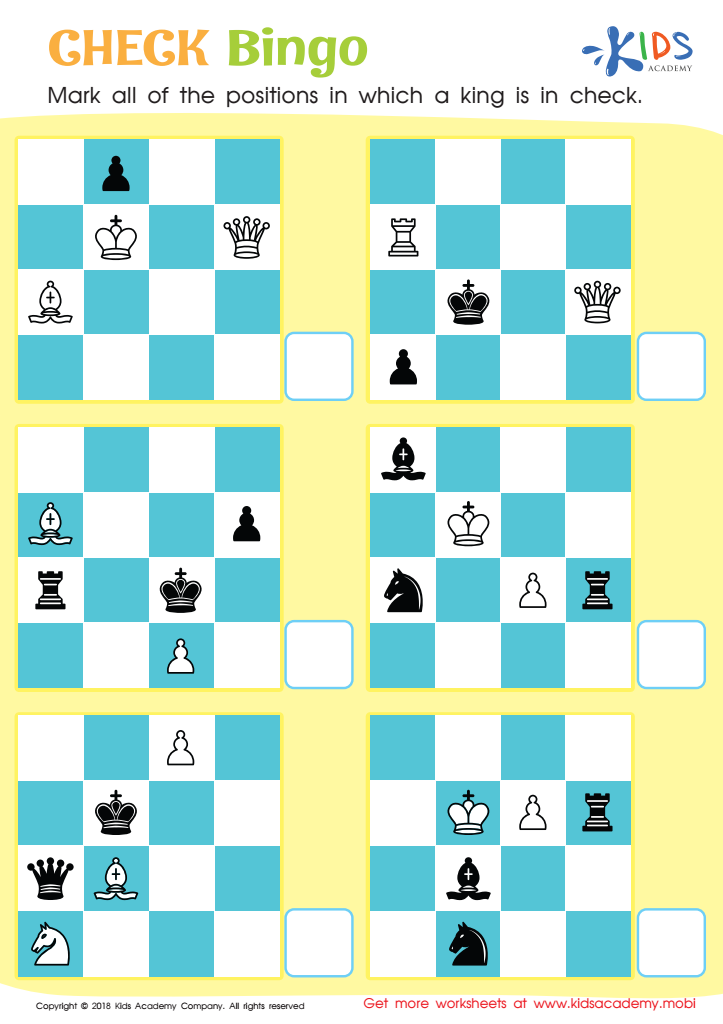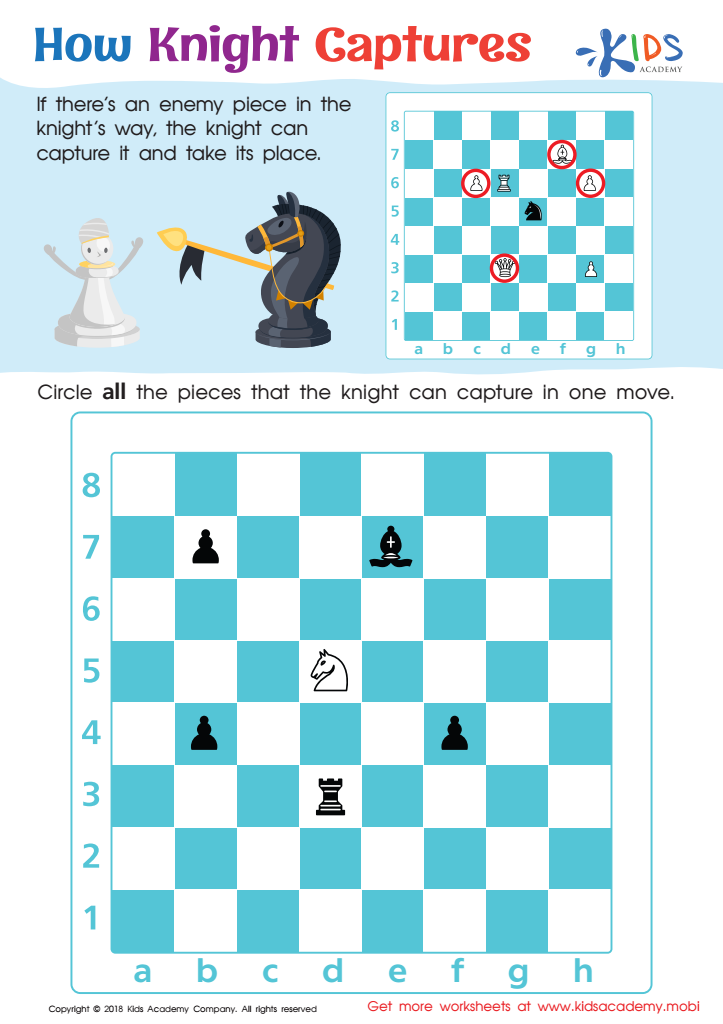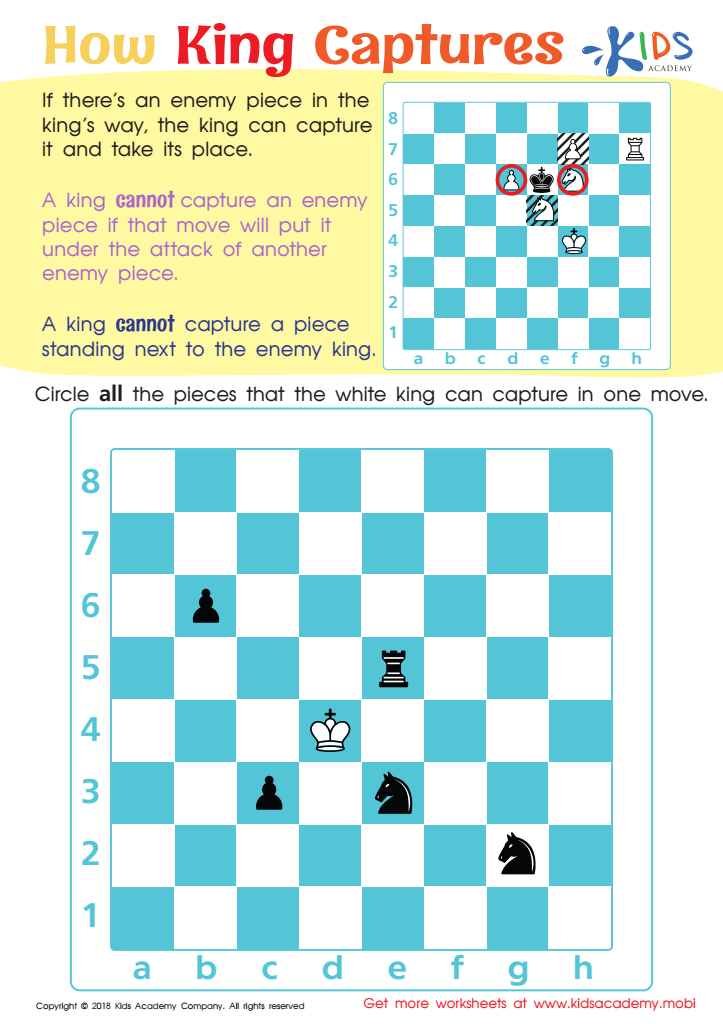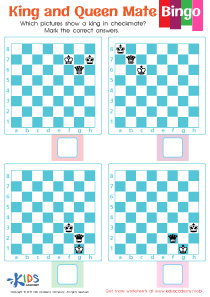Problem-solving practice Normal Chess Worksheets for Ages 5-7
3 filtered results
-
From - To
Discover our Problem-Solving Practice Normal Chess Worksheets designed specifically for children ages 5-7! These engaging worksheets introduce young learners to essential problem-solving skills through fun and interactive chess-related activities. Each worksheet is thoughtfully crafted to enhance critical thinking, strategic planning, and creative reasoning, all while making learning enjoyable. Perfect for both classroom and at-home use, our worksheets encourage kids to think ahead, assess situations, and make effective decisions on the chessboard. With colorful illustrations and engaging exercises, your little ones will develop confidence and analytical skills as they explore the fascinating world of chess. Start their chess journey today!


Check Bingo Worksheet


How Knight Captures Worksheet


How King Captures Worksheet
Problem-solving practice through Normal Chess for ages 5-7 is essential for fostering cognitive and social skills in young children. Chess, often seen as a complex strategy game, actually serves as an excellent educational tool. It enhances critical thinking by teaching kids how to analyze situations, identify possible moves, and foresee the consequences of their decisions. This strategic approach helps develop patience and discipline as children learn to think several steps ahead.
Moreover, chess encourages the growth of social-emotional skills. Children engage with peers in a manner that nurtures sportsmanship—including taking turns and coping with both victory and defeat. The structured gameplay offers a secure environment where kids can practice resilience as they learn that challenges can lead to improvement.
Additionally, incorporating chess into early education can boost concentration and enhance memory skills. Children develop better focus as they follow game sequences and recall their previous moves. For parents and teachers, supporting problem-solving through chess enriches classroom activities and home interactions, contributing to a well-rounded developmental experience. Ultimately, introducing chess at a young age prepares children not only for better academic performance but also for successful relationships in varied life contexts.
 Assign to My Students
Assign to My Students


















